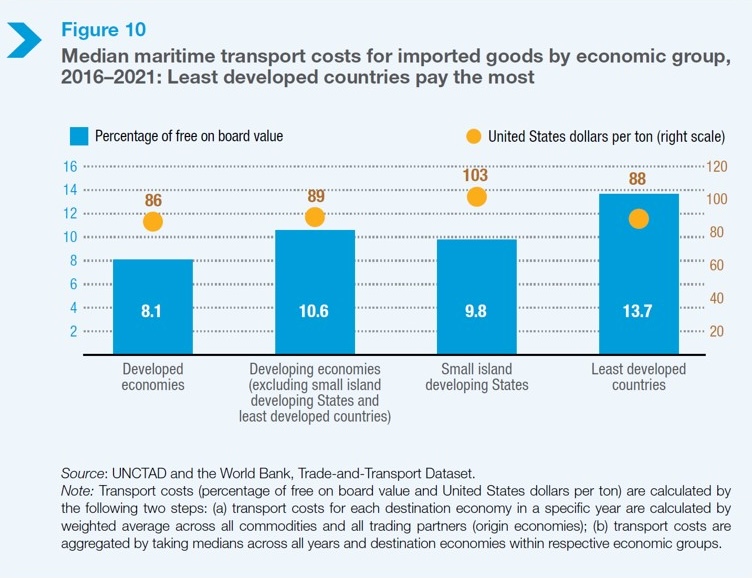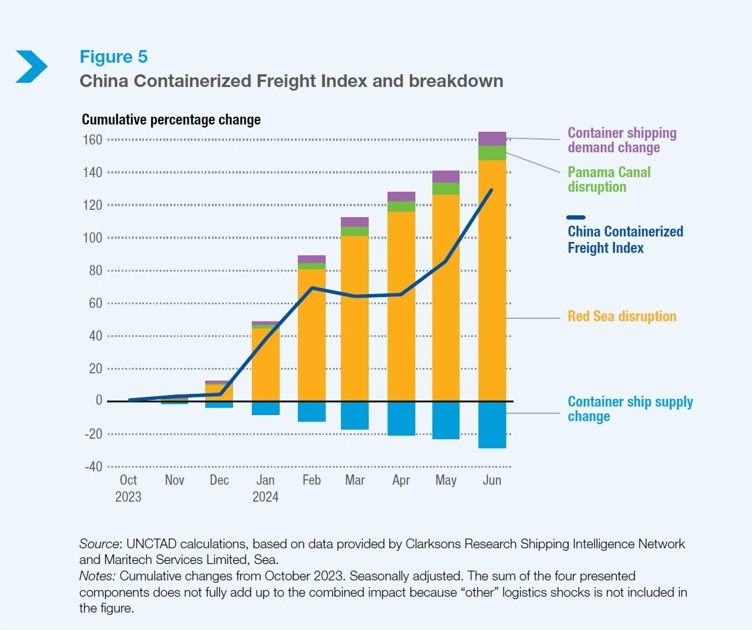UNCTAD, the United Nations’ trade and development body, has released its latest annual shipping report with the Review of Maritime Transport 2024 clearly highlighting how poorer countries have to fork out considerably more for their shipping needs.
Disruptions, driven by climate change and geopolitical tensions, are putting global trade and supply chains at significant risk, with particularly severe impacts on small island developing states (SIDS) and least developed countries (LDCs), the 148-page report warns.
The transport work intensity (TWI) per dollar of maritime trade in developing economies is double that of developed economies, according to UNCTAD data.
TWI for imports to developing economies as a group is 14.3, meaning that transporting goods worth $1 requires an effort equivalent to moving 14.3 tons over 1 km—or 14.3 kg over 1,000 km; 7.2 ton-km per dollar of imports is required in developed countries. A similar trend is seen with regard to exports.
UNCTAD is forecasting maritime trade volume to expand by 2% in 2024 and containerised trade volume by 3.5%. In the period 2025 to 2029, UNCTAD projects that total seaborne trade will grow on average by 2.4% and containerised trade by 2.7%. This growth, UNCTAD explained, is driven by increased demand for major bulks such as bauxite, coal, containerised goods, grain, iron ore and oil.
Maritime trade volumes reached 12.3bn tons in 2023 according to UNCTAD, an increase of 2.4%, after contracting in 2022.
“Complexity, volatility and uncertainty were the hallmarks of the shipping industry’s operating landscape in 2023 and the first half of 2024,” the report states.
Writing the report’s introduction, Rebeca Grynspan, secretary-general of UNCTAD, stated: “Disruption is becoming part of the new normal.”
UNCTAD’s annual shipping report has become one of the industry’s must-read publications. The 2024 edition, however, marks the final one for one of its key authors, Jan Hoffmann, the chief of UNCTAD’s branch of logistics, who will shortly relocate from Geneva to Washington DC to take up a new position with the World Bank.










